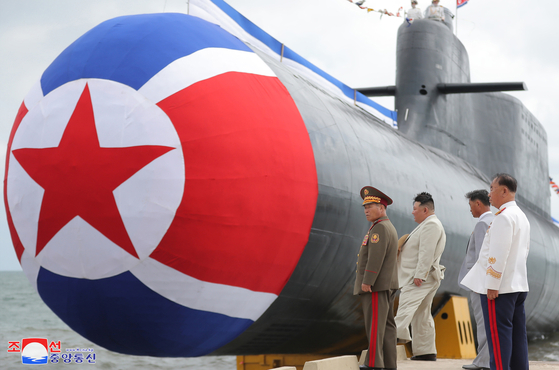
By Mooyoung Lee
The author is the director of New Media at the Korea Daily.
“Is North Korea preparing for war?” A reporter made the question at the White House press briefing on January 23.
Until recently, North Korea has been off the radar of the U.S. media, overshadowed by the war in Ukraine, which broke out two years ago, and the Israeli-Hamas war that started last October. The United States is already entangled in the two wars, and another war on the Korean Peninsula would be a headache.
As North Korean leader Kim Jong-un made increasingly strong rhetoric of war threats against South Korea, U.S. media began to pay attention to the possibility of a second Korean War. This shift in attention was sparked by an article published on January 11 by Robert Carlin and Siegfried Hecker of the Middlebury Institute of International Studies, titled “Is Kim Jong Un preparing for War” on 38 North, a website devoted to analysis about North Korea.
They warned, “The situation on the Korean Peninsula is more dangerous than it has been at any time since early June 1950… We believe that, like his grandfather in 1950, Kim Jong Un has made a strategic decision to go to war.” Given Carlin and Hecker’s decades-long expertise on North Korea, their assertion caused widespread concern.
Kim Jong-un’s recent comments have added fuel to the fire of war crisis on the Korean Peninsula. In his year-end report to the Workers’ Party plenum, Kim abandoned the path toward reunification and characterized relations between the two Koreas as hostile. On January 10, he issued an ultra-hardline statement that he would “completely destroy the Republic of Korea.” North Korea followed up its threats with four test launches of nuclear-capable cruise missiles in 10 days and a visit to the Nampo shipyard, telling the workers to “prepare for war.”

The U.S. government, recognizing the gravity of these developments, has responded with concern. In a January 19 press briefing, John Kirby, the White House’s National Security Council coordinator for strategic communications, said that there is a need to take such rhetoric seriously from a man [Kim Jong-un] in charge of a regime that continues to pursue the advancement of military capabilities including nuclear capabilities. Given the level of North Korea’s nuclear arsenal – it does not officially recognize itself as a “nuclear power” but is realistically perceived to have at least a dozen nuclear warheads – and recent developments on the Korean Peninsula, the undercurrent is that the threat cannot be dismissed as mere “rhetoric.”
However, U.S. and South Korean government officials report no concrete signs that North Korea is gearing up for full-scale war. North Korea’s large supply of artillery shells and ballistic missiles to Russia suggests a country gearing up for limited warfare rather than all-out conflict. This could involve surprise attacks or unconventional provocations, reminiscent of the shelling of Yeonpyeong Island or the sinking of the corvette Cheonan in 2010.
So, why does North Korea continue to escalate its threats? John Bolton, former national security adviser under President Donald Trump, offers some insights. In a new 18-page foreword to his memoir, “The Room Where It Happened,” released on January 30, Bolton speculates that Trump, if re-elected, could make a reckless deal on the North Korean nuclear issue early in his term.
North Korea may be raising the stakes in advance so that it can enter negotiations immediately if Trump wins the U.S. presidential election in November. North Korea has consistently called for the withdrawal of U.S. troops from South Korea. Of course, the packaging is a peace agreement to replace the current armistice. Without U.S. troops, South Korea is an easy target.
Withdrawing U.S. troops is something Trump would like to do as well. For Trump, South Korea is a free-rider country that runs a trade surplus with the United States through a free trade agreement (FTA) and relies on the United States for security. Known for his isolationist stance, Trump will tout as an accomplishment a peace deal with North Korea and brag that the U.S. has been pulled out of the brink of nuclear war.
Bob Woodward’s “Rage,” published in September 2020, described Trump’s dire desire to withdraw U.S. troops from South Korea. “The United States is paying for 30,000 American troops to be stationed in South Korea to protect the people of South Korea. We are the piggy bank that everyone wants to take away.”
Trump wanted to withdraw U.S. troops from Afghanistan and South Korea. President Joe Biden withdrew all U.S. troops from Afghanistan in August 2021. The question looms: What will be next?




